Doctors Without Borders volunteer performs life-saving surgeries in the heart of Gaza, amputates limbs on children
On the third day at the hospital, as I performed surgery, an ear-piercing blast rocked the building, echoing with the chilling screams of terrified children. I forced myself to maintain focus and finish the surgery before seeking the cause, which was a missile that made impact a kilometer away.
- 2 years ago
January 7, 2024
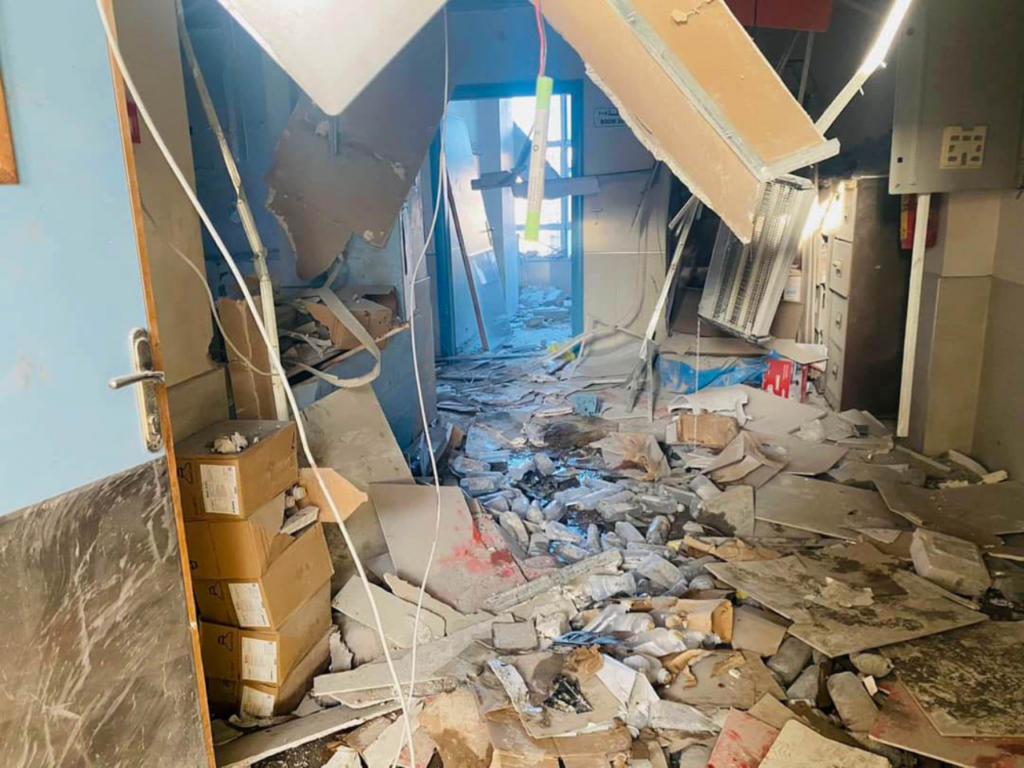

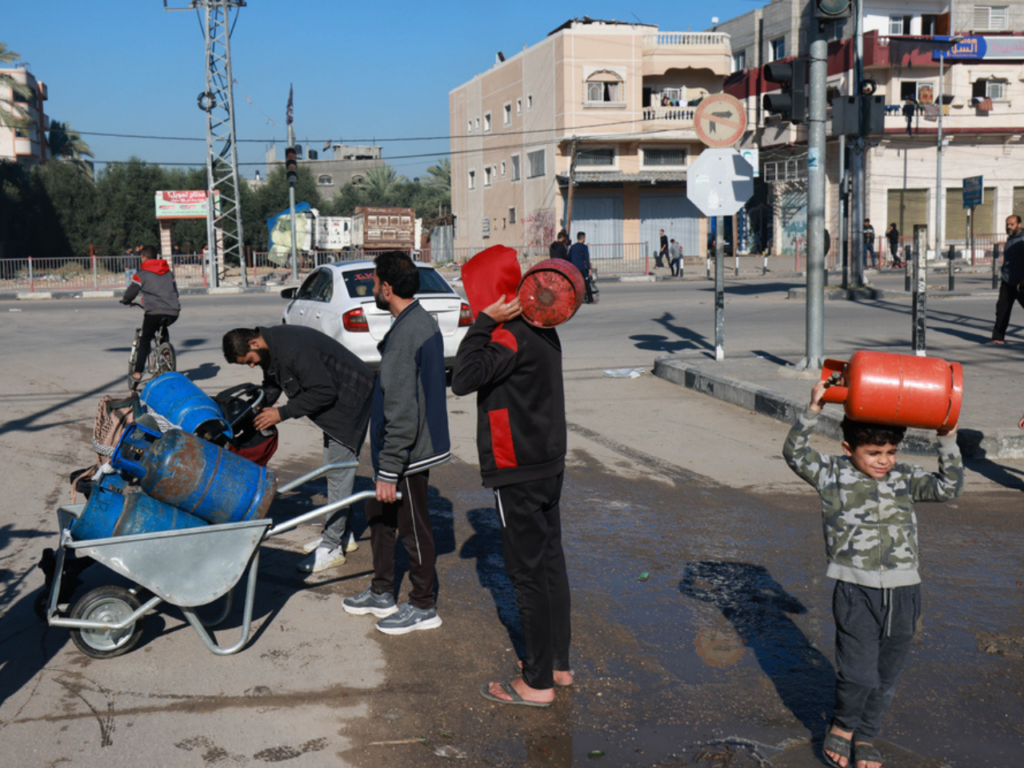


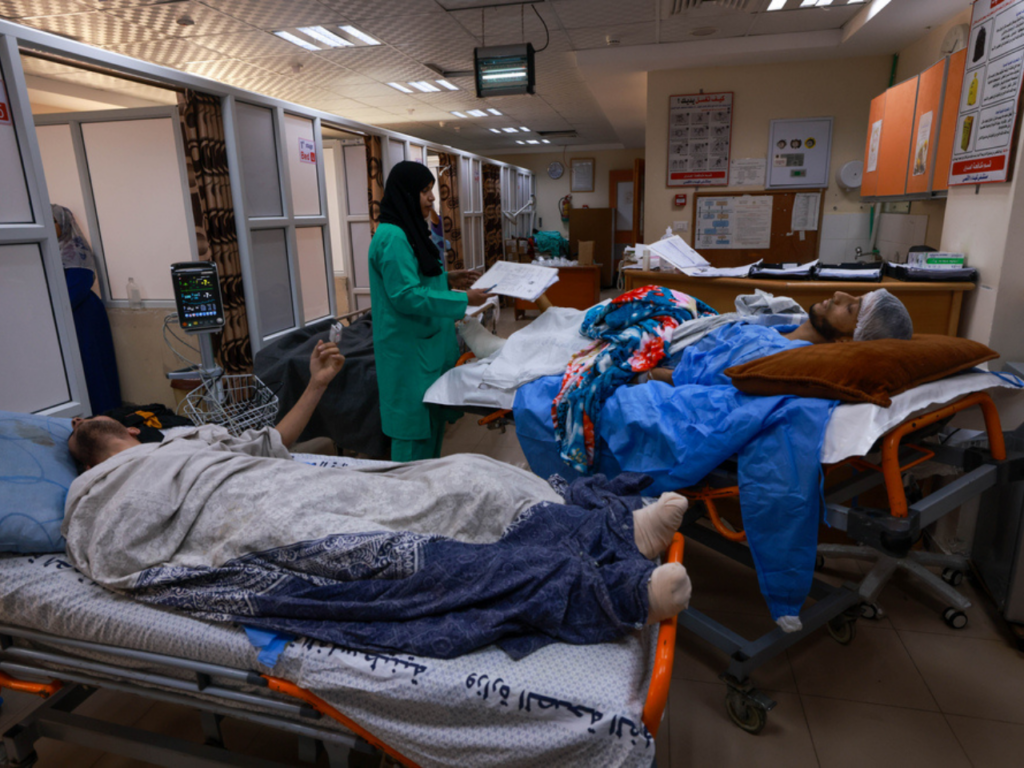
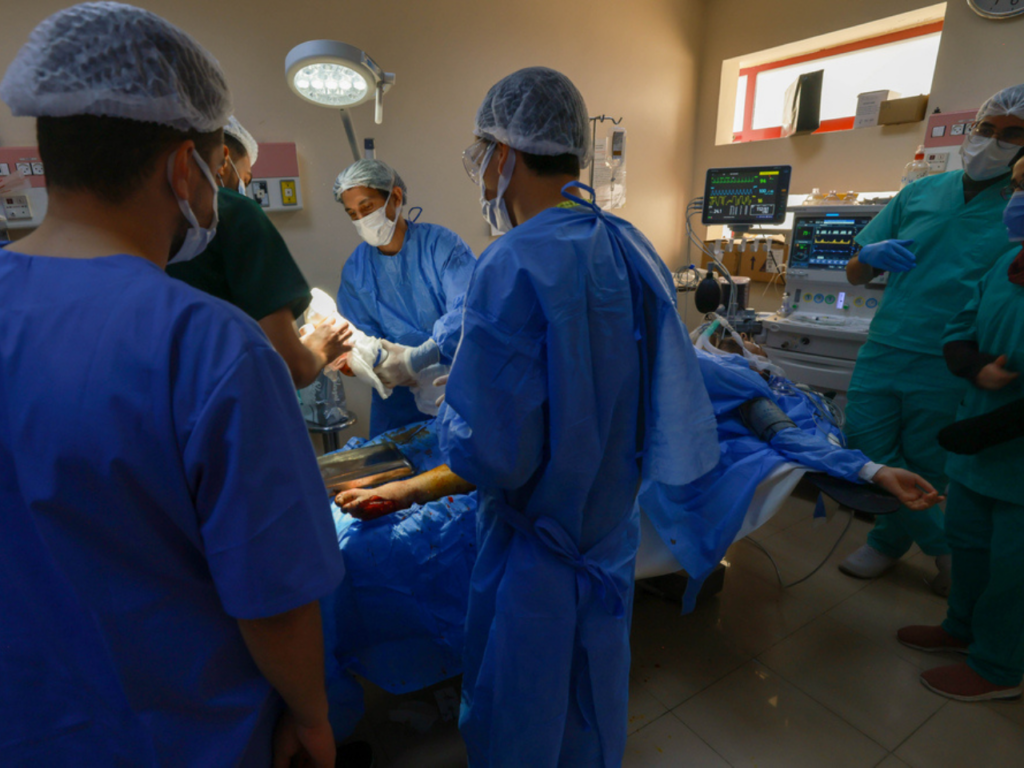
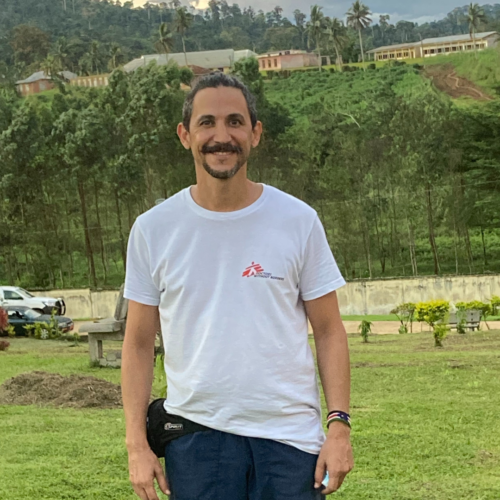
KHAN YUNIS, Gaza Strip — For the last 14 years, I worked with Doctors Without Borders, embarking on yeary missions in conflict zones around the globe. Yet, none of these missions have compared to my time in Gaza. The unprecedented civilian casualties presented a stark scene of human suffering and resilience.
From mid-November to December 2023, I assisted at Nasser Hospital, navigating corridors crowded with the injured and their families. The blockade’s impact felt palpable, with a severe lack of medical supplies leading to painful treatments and rampant infections.
As I left Gaza in mid-December, I carried with me an unfamiliar guilt and a profound frustration with the systemic issues perpetuating such suffering. The experience underscored the power of individual acts of healing and the urgent need for global engagement and storytelling to confront and address this crisis.
Read more stories out of the Israeli-Palestinian conflict at Orato World Media.
Heading to the heart of conflict: Gaza’s unyielding turmoil
In October, as Hamas launched its attacks on Israel, I found myself impatiently waiting for a Sudan mission visa amidst armed conflict there. Bureaucratic hurdles derailed my plans, but an alternate opportunity arose: a trip to Egypt in route to Gaza. I grabbed my gear and set off, filled with purpose.
Arriving in Egypt on October 19, 2023, my anticipation to help intensified. Frustrating delays in authorizing my entry only increased my eagerness to get into Gaza. During those days of waiting, I spent hours tracking photojournalists in the Gaza Strip via social media, gaining a grim preview of what awaited us. This time was not idle; it allowed our team to forge camaraderie and deepen our resolve.
On November 14, after numerous setbacks, we finally entered Gaza. The sight of its wall-enclosed, barbed landscape and utter ruin seemed hauntingly familiar. Yet, amidst the devastation, reuniting with two Gazan colleagues brought an unexpected surge of joy.
As we set to work in Khan Yunis, the aftermath of the bombings remained visible everywhere. Garbage piled up uncollected, filling the air with a noxious smell. The roads, once navigable, were now obstacle courses of debris and abandoned cars. Despite the bleak surroundings, my commitment to helping never wavered.
Upon reaching Nasser Hospital, I entered a scene of total chaos. The hospital resembled a refugee camp, teeming with patients and their families. I navigated through corridors cramped with makeshift living spaces in search of those seeking aid. This experience marked the start of an intense journey that would test my resolve and underscore the profound impact of conflict on human lives.
The stark realities of Nasser hospital: undertaking painfully necessary treatments without adequate pain relief became a regular ordeal
On the third day at the hospital, as I performed surgery, an ear-piercing blast rocked the building, echoing with the chilling screams of terrified children. I forced myself to maintain focus and finish the surgery before seeking the cause, which was a missile that made impact a kilometer away.
As I moved to consult with my colleagues, ambulances and cars poured in, carrying a relentless stream of wounded and lifeless bodies. Desperate parents, clutching their motionless children, added to the grim anguish and chaos that filled every corner.
Returning to the operating room, I confronted the overwhelming task of treating the critically wounded. Even with my extensive experience, the number of civilian victims, particularly children and women, proved heart-wrenching. In this densely packed area, bombs inflicted indiscriminate destruction.
Despite the weight of this tragedy, I kept a steady hand and a compassionate heart, committed to saving lives. As one of the first international teams on the ground, the locals opened up to us with their tragic tales, seeing hope in our efforts.
However, the violence did not relent. I soon understood that the bombings would continue unabated, with the so-called precision strikes claiming lives and destroying essential infrastructure. This realization deepened my resolve despite the despair.
The blockade severely limited supplies, complicating patient care. This shortage led to widespread infections. The hospital air felt thick with the sounds of suffering due to the severe shortage of antibiotics and analgesics. Undertaking painfully necessary treatments without adequate pain relief became a regular ordeal.
Relentless bombings continue, the despair of the Gazan people intensifies
The surgeries on children felt like one of the most shocking experiences I encountered. I remember a 16-year-old boy who came in after a bomb destroyed his home, leaving me no choice but to amputate both legs and an arm. As I cared for him, his eyes conveyed extreme sorrow — leaving me with a pit in my stomach.
I also treated a two-and-a-half-year-old toddler in need of amputation. During surgery, I couldn’t help but consider the cruel randomness of birthplaces and the unearned privilege of my circumstances. These children, embodying innocence, faced brutal fates they didn’t deserve. At the time, my connection with them deepened and reminded me of our shared humanity.
Despite the grim situation, I felt determined to bring joy. I did so through a simple joke, a balloon fashioned from a glove, or a quick game of soccer. These fleeting moments of lightness were vital, emphasizing the resilience of hope and the need for happiness.
Gazan people implored us to share their plight with the world, feeling forgotten and condemned. The ever-present drone hum served as a reminder of the ongoing siege, making nights restless with the threat of nearby blasts.
The end of my mission in mid-December arrived with a scheduled rotation, but leaving Gaza brought an unfamiliar sense of guilt. Usually, returning home is a relief, but this time, I felt complicit in a world that allows such suffering. Reflecting on the systemic issues that led to these horrors left me feeling both angry and frustrated.
Back in Buenos Aires, the everyday comforts starkly contrasted Gaza’s realities. This disparity strengthened my determination to share what I witnessed. As the relentless bombings continue, the despair of the Gazan people only intensifies.
All photos provided by Mohammed Abed / Courtesy of Doctors Without Borders.


































































































































































































































































































































































































































































